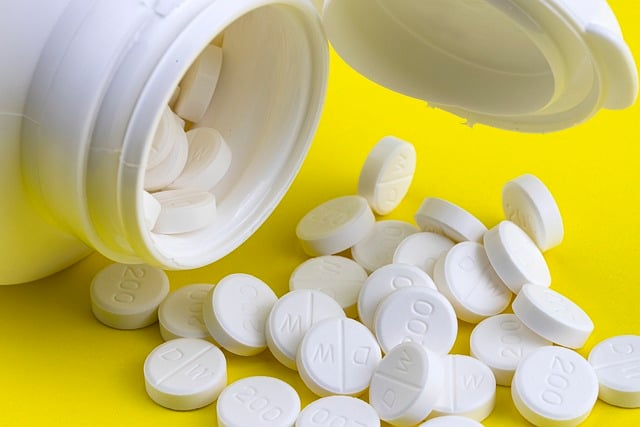BY VICTOR EMEJUIWE
It has become necessary that stringent measures are taken to enforce certain provisions of the National Health Act 2014 to curtail the debilitating effects of increased mortality rate amongst Nigerians. As of 2021, the World Bank rated Nigeria’s life expectancy at an average of 63.4 years. However, with the recent development of chronic diseases such as kidney malfunction, liver disease, cancer, diabetics and high blood pressure threatening the lives of the younger population of Nigeria, if nothing is done to enforce regulation of the health laws, there might be decrease in the life expectancy of Nigerians.
Available research indicates that fake drug circulation amongst pharmacies, hospitals and other health dispensaries is a common factor responsible for life-threatening diseases in Nigeria, especially among youths. A recent report revealed that forty percent of drugs circulated in Nigeria are fake. This report is an invalidation of the efforts of the Late Professor Dora Akunyili, who gave her best to sanitise the drug production industry and preserve the integrity of pharmaceutical consumables in Nigeria.
The National Library of Medicine confirms the following findings; that falsified and substandard drugs may contain toxic doses of dangerous ingredients and cause mass poisoning. It also discovered that poor-quality medicines compromise the treatment of chronic and infectious diseases, causing disease progression, drug resistance, and death. It also concludes that as chronic diseases increase in low and middle-income countries, so will the need for reliable medicines and that substandard and falsified medicines encourage drug resistance, threatening the health of populations today and in the future
Advertisement
The various agencies responsible for health administration should be indicted for not implementing critical aspects of the National Health Act 2014. For instance, Section 13 (1) of the NHA provides for the issuance of certificates of standards.
The provision states as follows: “Without being in possession of a certificate of standards, a person, entity, government or organizations shall not;
- Establish, construct, modify or acquire a health establishment, health agency or health technology;
- Increase the number of beds in, or acquire prescribed health technology at a health establishment or health agency;
- Provide prescribed health services; or
- Continue to operate a health establishment, health agency or health technology after the expiration of 24 months from the date this Act took effect.”
The above provision sets the tone for the certification of everyone or any institutions administering health care or health-related products to Nigerians but unfortunately, there is no evidence of display of certificate of standards in most of our pharmacies and health establishments in Nigeria today. The issuance of certificates of standard by the health regulatory body would have helped to ascertain the qualification, standard procedure and quality assurance of health establishment practitioners in Nigeria.
Advertisement
More worrisome is that beyond the orthodox medical practitioners, most Nigerians resort to traditional medical practitioners as an alternative treatment for common ailments. By the provision of the law, traditional medical practitioners are supposed to be regulated and issued a certificate of standard once it is merited. The danger posed by non-scientific verification of treatment mixtures and dosages prepared by alternative medicine practitioners to the health of consumers should not be ignored by regulatory agencies.
The National Health Act mandates the minister of health to prescribe conditions relating to traditional health practices to ensure the health and well-being of persons who are subject to such health practices. On the peddlers of fake and substandard drugs, there is a need for the NAFDAC officials to visit the various health establishments to ensure compliance with the National Drugs Formulary and Essential Drugs List. Section 39 of the NHA (2014) provides for a compendium of drugs approved for use in health facilities throughout the federation.
While the act encourages indigenous production of drugs, such drugs should be subject to the routine checks of NAFDAC before distribution to the various health establishments. Without a proactive routine check on health establishments and manufacturers, there is a possibility that unregistered or imitated drugs can be peddled amongst pharmaceutical companies or by local drug dispensaries in the neighbourhood.
Also, in line with the act, Nigerians should be availed of information on the categories of health services approved for various health establishments. This applies to both government and private health establishments. Regular information on sanctioned and approved drugs for certain types of treatments should be displayed in all health establishments, most especially pharmaceutical stores and local dispensaries. Local drug hawkers without any validly verifiable source of drug supply should as much as possible be discouraged. The same applies to local hawkers of traditional medicines.
Advertisement
In conclusion, Nigeria’s health authorities must continue to make proactive efforts to reduce the incidences of chronic health disease that poses a threat to the youthful population of Nigeria by enforcing relevant sections of the NHA (2014) on drug administration and control.
Victor Emejuiwe is the monitoring evaluation/strategic communication manager for the Centre for Social Justice. He can be contacted via [email protected]
Photo credit: LindyHealth
Advertisement
Views expressed by contributors are strictly personal and not of TheCable.
Add a comment








